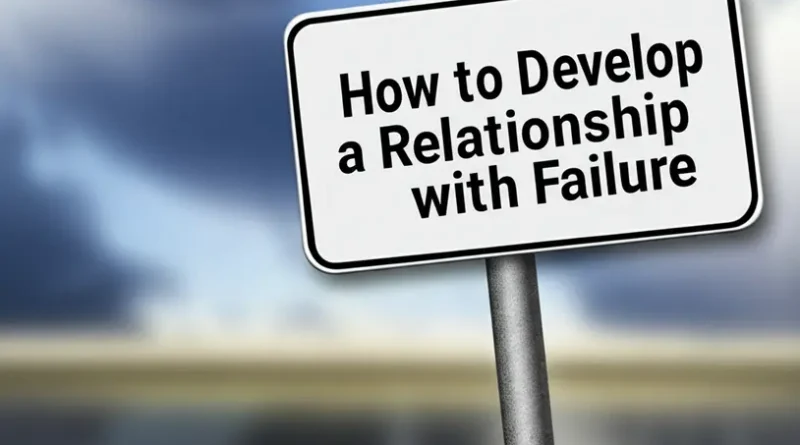How to Develop a Healthy Relationship with Failure
Failure is often seen as an enemy in our lives, lurking in the shadows threatening our success and self-esteem. However, it doesn’t have to be that way. In fact, developing a healthy relationship with failure can be transformative, leading to personal growth and improved resilience. Whether you’re an individual pursuing personal goals, a professional navigating the complexities of work, or a student facing academic challenges, learning how to embrace failure can provide invaluable lessons.
The first step in developing a healthy relationship with failure is to reframe how you perceive it. Instead of viewing failure as a reflection of your self-worth, it’s essential to embrace it as an opportunity for learning and growth. This mindset shift allows you to approach failures with curiosity rather than dread, prompting you to ask, “What can I learn from this experience?” Doing so transforms failure from a negative event into a valuable teaching moment.
One effective strategy to cultivate this mindset is to practice self-compassion. When you experience failure, treat yourself with kindness rather than harsh criticism. Research has shown that self-compassion can significantly affect how we respond to setbacks. Instead of letting shame or blame take over, remind yourself that everyone encounters failure, and it does not define your ability or potential. Acknowledging that it’s a shared human experience can help ease the burden.
Another practical approach is to set realistic expectations. Perfectionism can be a significant obstacle in maintaining a healthy relationship with failure. High expectations often set us up for disappointment when things don’t go as planned. While it’s important to strive for excellence, aiming for perfection can lead to fear of failure and avoidance of risks altogether. Allow yourself the grace to set achievable goals and understand that missteps are part of the journey.
As you navigate through challenges, it can be beneficial to reflect on successful individuals who have publicly shared their failures. Iconic figures like J.K. Rowling and Steve Jobs are perfect examples of how significant setbacks can lead to monumental successes. Their experiences remind us that failure is not a dead end but often a detour on the path to achievement. Learning about their stories can inspire you to take risks, knowing that failures often serve as stepping stones toward greater accomplishments.
Next, consider developing a proactive approach to tackle fear of failure. Fear can paralyze you from taking the necessary steps towards your goals, whether big or small. One effective technique is to practice exposure — gradually expose yourself to situations where failure is a possibility. This approach can lessen the apprehension associated with failure by normalizing it in your life. You might start by trying out for a team, speaking publicly, or pitching an idea at work, understanding that the outcome doesn’t solely define your worth.
Moreover, engage in reflection and journaling after experiencing setbacks. Documenting your thoughts and feelings can provide clarity, helping you to understand your emotions and responses to failure. Write down what went wrong, what you learned, and how you plan to move forward. This practice not only helps in processing what happened but also provides a roadmap for future successes.
It’s also essential to build a supportive community around you. Surround yourself with individuals who encourage risk-taking and view failure in a constructive light. Accountability partners, mentors, or supportive peers can offer perspectives and insights that reinforce your understanding of failure as a learning opportunity. They can remind you of your strengths and maintain motivation when you encounter obstacles.
Lastly, remember to celebrate your resilience. When you face failure and bounce back, take the time to acknowledge the courage it takes to continue moving forward. Celebrating small wins, even in the face of failure, reinforces a growth mindset and cultivates a sense of accomplishment. This celebratory practice can fortify your motivation to take more risks and seek new opportunities.
A healthy relationship with failure is crucial for personal and professional growth. By reframing your perception of failure, practicing self-compassion, establishing realistic expectations, looking to the examples of successful figures, facing your fears, reflecting on your experiences, building a supportive community, and celebrating your resilience, you will forge an empowering relationship with failure.

